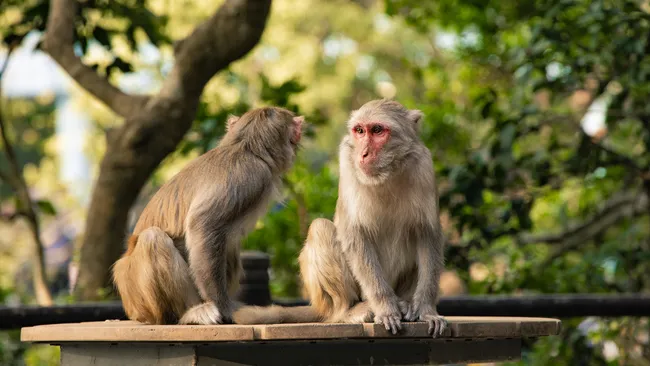
Hong Kong recently reported its first human case of the B virus, a rare but potentially deadly infection transmitted from macaque monkeys to humans. The patient, a 37-year-old man, is in critical condition after being attacked by a monkey.
What is the B Virus and How Dangerous is it?
The B virus, also known as the human simiae virus, is typically transmitted from macaque monkeys to humans through bites or scratches. While macaques often show no symptoms or mild ones, the virus can be lethal in other primates like chimpanzees and capuchin monkeys.
Human infections are rare but serious. Since its discovery in 1932, there have been about 50 recorded human cases, resulting in 21 deaths. Without prompt treatment, the mortality rate can be as high as 70 to 80 percent.
How is the B Virus Transmitted?
The virus is found in the saliva, urine, and stool of infected macaque monkeys. Humans can become infected through bites, scratches, or contact with contaminated surfaces.
People with weakened immune systems or skin injuries are at higher risk. Laboratory workers and veterinarians who handle monkeys or their specimens are also vulnerable.
Symptoms and Treatment
Flu-like symptoms such as fever, chills, muscle aches, and fatigue can develop within days to weeks after infection. The virus can cause small blisters at the wound site and progress to more severe symptoms like inflammation of the brain and spinal cord.
While there is no vaccine, antiviral drugs are available for prevention and treatment. Prompt medical attention is crucial for anyone exposed to the virus.
Prevention Measures
Avoiding contact with macaque monkeys is key to preventing B virus infection. The Agriculture, Fisheries, and Conservation Department advises against feeding or approaching monkeys in public areas.
If injured by a monkey, individuals should wash the wound thoroughly and seek immediate medical care. Laboratory workers should use protective equipment when handling monkeys.
This recent case underscores the importance of awareness and caution around wild animals to prevent the transmission of rare but dangerous infections like the B virus.






Be First to Comment